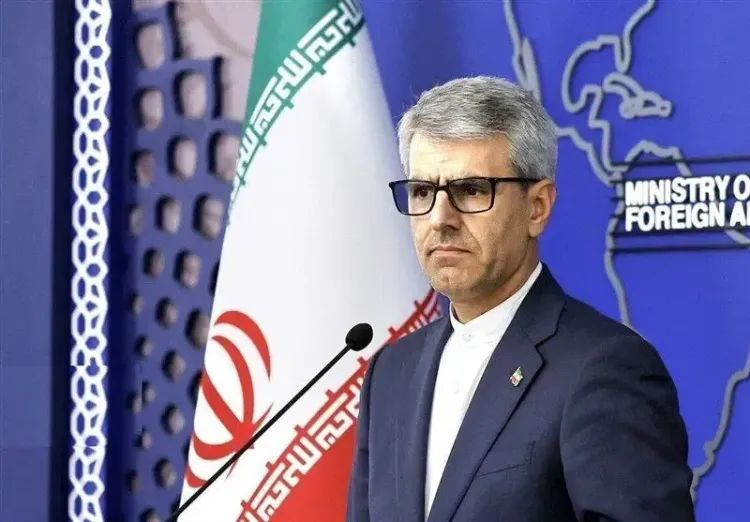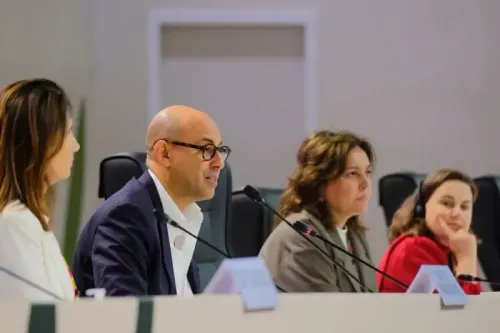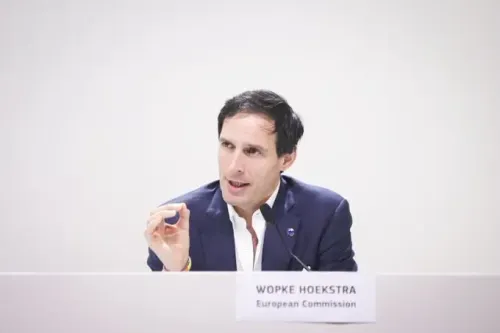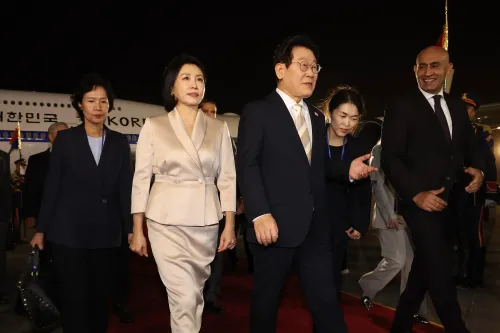Did Iran Really Start Nuclear Discussions with the US?

Synopsis
Key Takeaways
- Iran denies any ongoing nuclear negotiations with the US.
- Esmaeil Baghaei emphasizes the absence of a dialogue process.
- Trump claimed Tehran was eager for a deal.
- Previous indirect talks occurred through Omani mediation.
- Concerns regarding US commitments impact future negotiations.
Tehran, Nov 20 (NationPress) The spokesman for Iran's Foreign Ministry, Esmaeil Baghaei, has firmly dismissed a recent assertion made by US President Donald Trump claiming that diplomatic discussions regarding nuclear issues were taking place between Tehran and Washington.
His comments came during a press briefing in Tehran on Wednesday (local time), just a day after Trump stated that the United States was engaging in conversations with Iran and that Tehran was eager to reach an agreement.
In a meeting with Saudi Crown Prince Mohammed bin Salman at the White House on Tuesday, Trump remarked, "We are in talks with them, initiating a process. A deal with Iran would be a positive outcome."
Baghaei emphasized, "At this moment, there is no negotiation process occurring between Iran and the United States."
He highlighted the US's history of failing to uphold its commitments and presenting "unreasonable demands," reiterating that engaging in discussions with a party that does not recognize negotiations as a mutual process, and boasts of its "unjust military actions" against Iran and its citizens, lacks logical rationale, as reported by Xinhua.
Concerning a message from Iran's President Masoud Pezeshkian to the Saudi crown prince before his visit to the US, Baghaei confirmed that it was strictly bilateral. This message conveyed Iran's appreciation for the assistance provided to Iranian pilgrims during the previous year’s Hajj and underscored the importance of ongoing cooperation for the upcoming pilgrimage.
Previously, Iran and the United States conducted five rounds of indirect, Omani-mediated discussions regarding Tehran's nuclear program and US sanctions from April to June. A sixth round, set for June 15, was cancelled after Israeli airstrikes on several Iranian nuclear and military installations resulted in fatalities among senior commanders, nuclear experts, and civilians. On June 22, US forces participated in the assault, bombing three Iranian nuclear sites located at Natanz, Fordow, and Isfahan.









